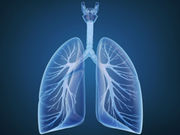New recommendations focus on refinement of COPD assessment, escalation/de-escalation of therapy
THURSDAY, Feb. 2, 2017 (HealthDay News) — Recommendations have been updated for diagnosis, management, and prevention of chronic obstructive pulmonary disease (COPD), according to the Global Initiative for the Diagnosis, Management and Prevention of Chronic Obstructive Lung Disease (GOLD) report published online Jan. 27 in the American Journal of Respiratory and Critical Care Medicine.
Claus F. Vogelmeier, M.D., from the University of Marburg in Germany, and colleagues address diagnosis, management, and prevention of COPD, focusing on new recommendations for assessing COPD, strategies for escalation and de-escalation of therapies, and discussion of nonpharmacologic treatments.
The authors note that the most significant changes in the report include refinement of COPD assessment in order to separate spirometric assessment from evaluation of symptoms based on the “ABCD” grouping. They propose deriving the ABCD groups exclusively from patient symptoms and their history of exacerbations. Escalation strategies are proposed for pharmacologic treatments for each of groups A to D; the concept of de-escalation of treatment should be considered for patients in whom symptoms resolve. The authors also discuss non-pharmacologic therapies, including pulmonary rehabilitation, exercise training, oxygen therapy, vaccinations, interventional bronchoscopy, and surgery, as well as end-of-life and palliative care. The importance of treating comorbidities, which often occur, and of managing COPD in the presence of comorbid conditions is also highlighted.
“The latest report revises the GOLD document in important ways based on the latest scientific and clinical studies,” a coauthor said in a statement.
Full Text (subscription or payment may be required)
Copyright © 2017 HealthDay. All rights reserved.








